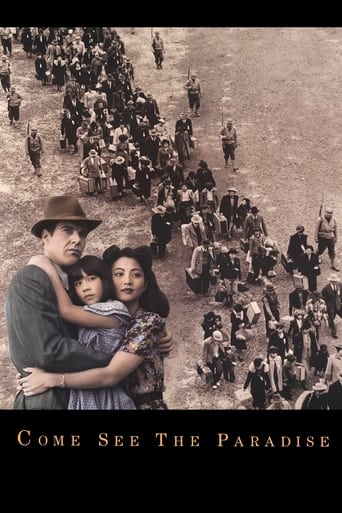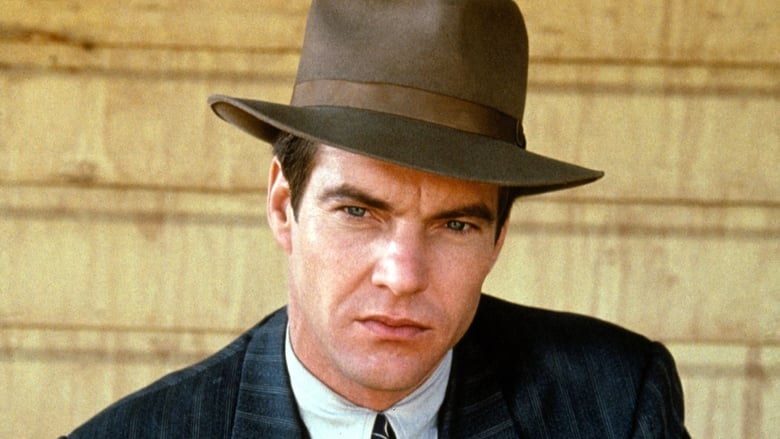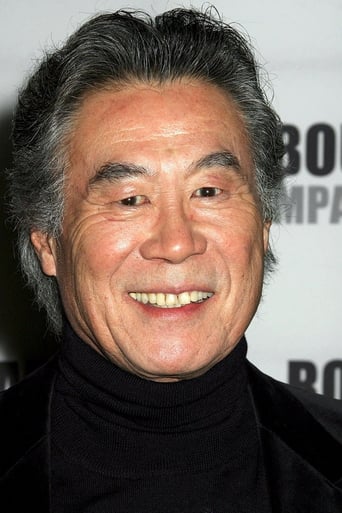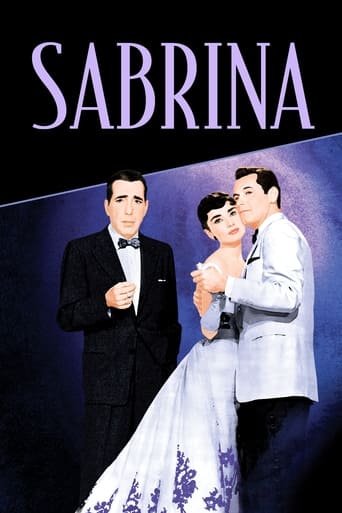Come See the Paradise (1990)
In this drama from director Alan Parker, on-the-lam Jack McGurn flees to Los Angeles and takes a job as a projectionist at a movie theater owned by a Japanese-American man. Jack falls for the owner's daughter, Lily, but they are forced to elope to Seattle when her father forbids the relationship. The couple marry and have a daughter, but when World War II breaks out, Jack is powerless to stop his new family's forced internment.
Watch Trailer
Cast


Similar titles
Reviews
Strong and Moving!
If the ambition is to provide two hours of instantly forgettable, popcorn-munching escapism, it succeeds.
It's entirely possible that sending the audience out feeling lousy was intentional
The movie turns out to be a little better than the average. Starting from a romantic formula often seen in the cinema, it ends in the most predictable (and somewhat bland) way.
This movie tells a story that often many Americans do not recall. When we think of camps, we usually think about how Americans were heroes who liberated Nazi camps during the second World War. However, this story lets you observe the many aspects of Japanese internment and how many American citizens were imprisoned by the way that they looked rather than for having committed a crime. I find the first half an hour or so unnecessary. You are introduced to a Japanese family and their business, and Dennis Quaid's character. His character is actually pretty unnecessary in the movie. He does not really contribute anything to the plot besides being married to a japanese girl. Of course, this was rather odd at the time since the Japanese were considered the enemy, but that is pretty much it in my opinion. The movie could have retold the exact same story and saved us about 45 minutes in telling us about Japanese internment without the use of his character. THis is not to say the movie is bad, but it is pretty long for no reason other than to include an american that you are supposed to be inclined into liking.
Yes, the American supreme court made a grave error in judgement when they ruled that the internment of Japanese Americans was legal under the U.S. Constitution. However, this film, Come See the Paradise, is (see apt title of this review) trash. While this film makes an obvious effort to highlight the widespread prejudice and violence against Japanese Americans in the mid-twentieth century, it relies on racial stereotypes and a pathetic love story. As a character, Jack/Dennis Quaid (one of the few white actors in the film) is completely unnecessary to the storyline, and makes leaves the impression that the story is only significant because it affects the life of a good ol' American boy. There is great potential in the concept of this film, but would need a new director/script/plotline and much less Dennis Quaid.
While the main plot line focuses entirely too much on the love story between Jack and Lily, there are some parts of the film that make it worthwhile.There was some redeemable aspects of the film. The setting shown after the Japanese were put into the camps was particularly powerful. We were able to see the vandalism and racism targeted at them during the weeks before internment, as well as the ghost towns left behind when they were forced out.. Some of the stereotypical responses of people who are put in camps were displayed in this picture. The father, an older man with a great sense a purpose before internment, completely lost his way in the camp. In Santo Tomas, where Americans were interned in the Philippines, there were similar instances of important men crumbling under the camp setting. The mother, who was not allowed to become a citizen of the United States, was told she could not help make camouflage military nets, even though she just wanted to be doing something and was not working for pay like her daughters. Though boredom is not the worst thing a person interned could experience, it shows how restricted they were. She simply wanted something to do but was not allowed because she was Japanese. The son, Charlie, developed a deep connection to his ancestor's homeland of Japan though he had never even been there and spoke little Japanese. The targeting and persecution forced him to embrace and learn more about his heritage and ultimately return to Japan. And opposite him was the son, Harry, who joined the U.S Army and died in service. Harry, a rational man who tended to err on the side of caution, did what he thought was safest for him, though it turned out to be the cause of his death. The different outcomes of these characters shows the ways people can react to internment, even within the same family.
"Come See the Paradise" is nothing short of an insulting representation of what occurred in Japanese internment camps during World War II. While there are some redeeming qualities, it is masked by the incredibly awkward sexual interactions between Jack and Lily and the racial insensitivity. It is incredible that anyone who reviewed the film before letting it be shown in theaters would think that making a joke about Chinese people eating dogs was appropriate for the context of the film. One of the main questions I have about the film is why Dennis Quaid's character was necessary and if the director thought Jack was necessary, why did they not include the interrogation of Jack in the movie? This would have increased the quality of Jack's character tenfold. The red scare was a huge part of the time period and to reference it without developing the topic further was very confusing. There are only two semi redeeming plot lines that occur during the film that can somewhat accurately portray what it may have been like to be in a camp: Mr. Kawamura's rapid decline in the camp and Charlie's turn towards Japanese allegiance. Mr. Kawamura's rapid loss of self-respect and sense of self is an accurate portrayal of what happened to many people within camp systems because it showed how camps systematically could break people's psyche. Charlie joining the JCL, shaving his hair, and being sent to Tulley can be seen as a representation of the transformation of self within the camp. Charlie, having lost a sense of purpose within the camp system, found a new purpose by directing his allegiance to Japan. Many people have little knowledge about Japanese internment camps and this movie had the opportunity to introduce people to camps in a way that was representative of the camp system but failed to do so. The audience doesn't even see the camp until halfway through the film and the buildup to the camp is focused mostly on the relationship between Jack and Lily. Overall, I wouldn't recommend anyonesee if this movie unless the purpose was to point out why Hollywood is unable to do movie about camps well.

















